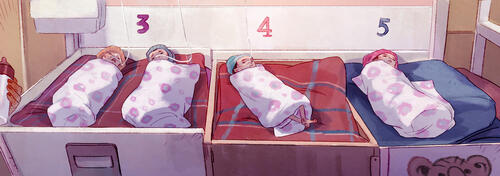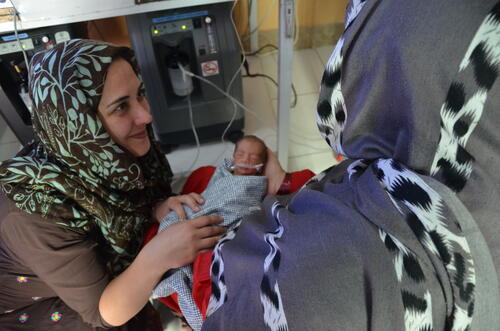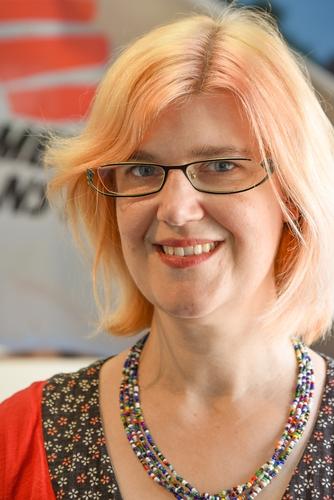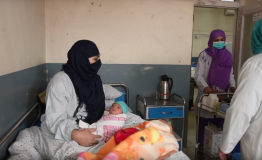Hila: Born in Afghanistan
A comic produced by illustrator Aurélie Neyret
In one hospital in Khost, in eastern Afghanistan, not far from the Pakistani border, MSF midwives and doctors have helped bring more than 100,000 babies into this world.
With more than 60 new little bundles of joy being popped out every day, Khost is not only MSF’s busiest maternity, but also one of the busiest maternity wards in the whole world.
Inside, taking photographs and videos is extremely restricted for cultural reasons, but the stories of this special ‘women caring for women’ project deserve to be shared. So we sent Aurélie Neyret, an incredibly talented illustrator to spend nine days immersed with the team in Khost – observing, sketching, and gathering stories of patients, family members and MSF staff.
Aurélie is part of an association called The Ink Link, a non-profit network of illustrators, script writers, and colourists who partner with organisations to use illustration and comics for social causes.
Khost maternity hospital
MSF opened a specialised maternity hospital in Khost in 2012 to provide safe, high quality and free maternal and neonatal care to women and their babies in the eastern part of the country. Since 2016, the team has also been supporting five health centres in the province to increase their capacity to provide maternal healthcare.
In rural areas and away from the big cities, the majority of women do not have adequate access to essential obstetric care. In provinces like Khost, accessing proper care is further exacerbated by the limited availability of female midwives and doctors.
MSF’s specialised maternity hospital tries to overcome some of these challenges, namely helping to reduce the high maternal mortality rate in the area, by offering a safe environment for women to deliver their babies, with free of charge care provided predominantly by female medical staff.
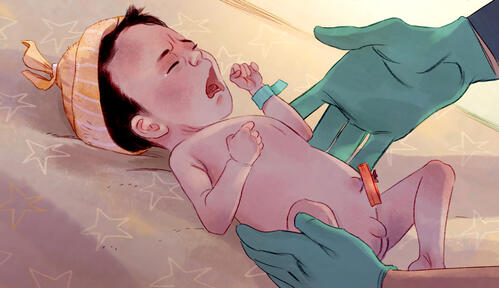
The maternity hospital covers an area with almost 1.5 million inhabitants and based on the calculation of expected deliveries, MSF teams assist around 40 percent of the total deliveries in the province.
The number of deliveries has grown steadily since the opening of the maternity, and in 2017 the figure almost reached 23,000; a 7 per cent increase on 2016. Additionally, 1,650 newborns were admitted in the neonatology unit during 2017. There were more than 26,000 total admissions in the hospital.
The hospital’s services comprise of an inpatient department, including a 68 bed maternity and 22 bed newborn unit, two operating theatres, comprehensive emergency obstetric care, vaccinations for newborn babies, family planning, health promotion and a dedicated women’s health clinic.
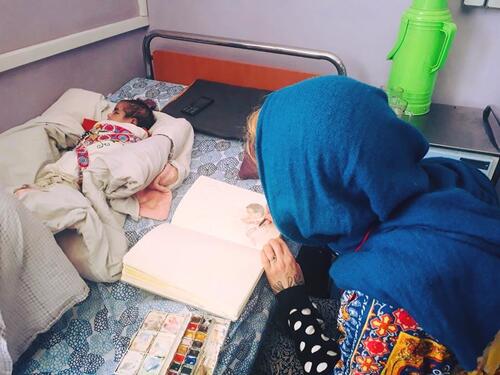
In 2016 MSF started supporting two health centres in the peripheral districts of the province and in 2017 the support was extended to three other facilities.
The main goal is to increase their capacity, allowing them to remain open 24/7 and assist more simple deliveries without needing to refer patients to MSF's maternity hospital. That makes it easier for mothers to give birth closer to their homes and at the same time the MSF facility can focus its resources on complicated deliveries, which involve higher risks for the health of mothers and babies.
In addition to these health centres, MSF is also providing human financial and logistic support to the Khost Provincial Hospital in order for it to also increase its maternal healthcare services.
'Hila' means ‘hope’; hope for a better future, for Afghanistan, for children and for women.Dr Séverine Caluwaerts, MSF gynaecologist




